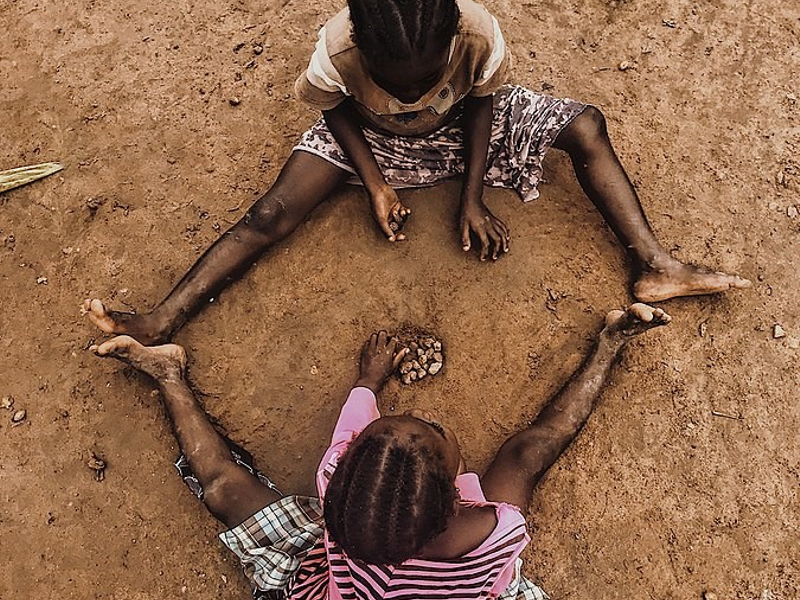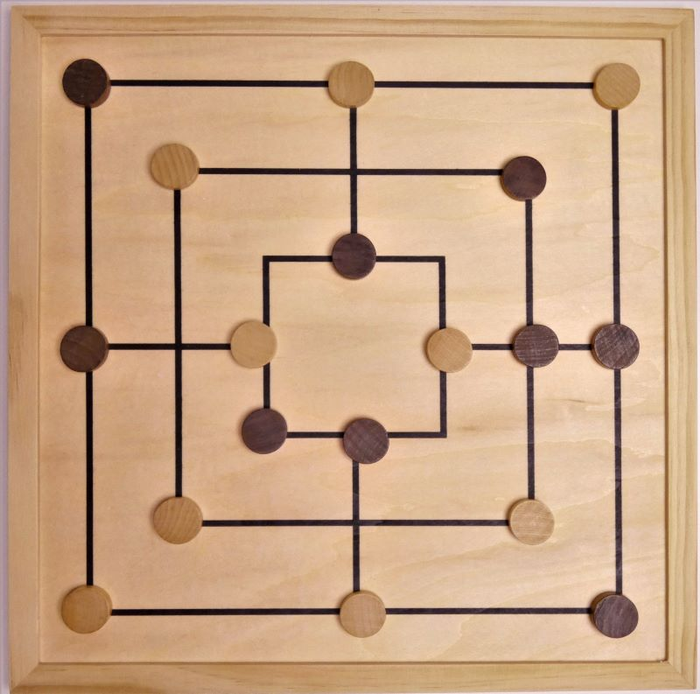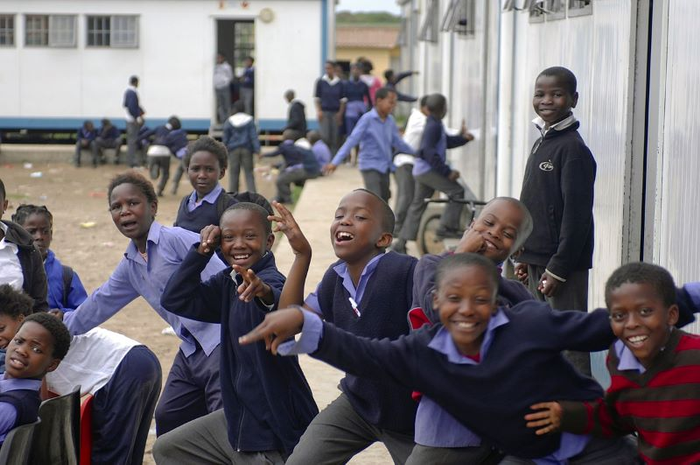
Girls playing Diketo. Source: Wikimedia Commons
Dust swirls in the golden rays of a township sunset, kids gather in a circle, their laughter echoing like the township’s heartbeat. But instead of phones and screens, they’re tossing stones, weaving rope, and chanting in languages older than time. This ain’t an ordinary scene; this is the revolution of indigenous games, and it’s redefining education and empowerment for township youth in South Africa.
Indigenous games have been repositories of cultural knowledge, agility, and community spirit in African societies for centuries. From the strategic mastery of “Morabaraba” (a board game played with stones) to the cooperative spirit of “Diketo” (a team-based jumping game), these games teach valuable lessons about strategy, problem-solving, and collaboration. Today, these games are powerful tools for youth development in South African townships, offering a unique blend of education, empowerment, and cultural revitalization.
However, the impact of indigenous games is even more profound. In townships with limited access to quality education and recreational facilities, these games provide an avenue for social development and empowerment. They bridge the gap between different age groups, fostering intergenerational relationships and promoting respect for elders. They create spaces for girls and boys to play together, challenging gender stereotypes and promoting inclusivity. Most importantly, they build self-confidence and a sense of agency in young people who might otherwise feel marginalized.
The impact of indigenous games extends beyond townships, sparking a broader conversation about decolonizing education and reclaiming African narratives. As these games gain recognition and popularity, they challenge the hegemony of Western educational models and highlight the value of indigenous knowledge systems. This broader dialogue paves the way for a more inclusive and equitable education system that celebrates the diverse cultural tapestry of South Africa.

Wooden Morabaraba board and pieces. Source: Wikimedia Commons
Educational Benefits –
1. Enhanced Cognitive Skills:
Indigenous games require strategic thinking, problem-solving, and decision-making skills. Youths develop cognitive abilities crucial for academic success and personal growth by engaging in these games.
2. Cultural Literacy:
Incorporating traditional games into education helps preserve cultural knowledge and instills a sense of cultural literacy among the youth. This knowledge is vital for understanding and respecting the diversity within South Africa.
3. Social Development:
Many indigenous games are designed to be played in groups, fostering social interaction and teamwork. These social skills are transferable to various aspects of life, contributing to the development of well-rounded individuals.
4. Physical Fitness:
Traditional games often involve physical activity, promoting health and well-being. From running and jumping to hand-eye coordination, these games contribute to the overall physical fitness of the youth.

South African school children. Source: Wikimedia Commons
Empowerment Through Play
The empowerment of youth in South African townships goes beyond the classroom. By incorporating indigenous games into community programs, we create opportunities for skill development, personal growth, and empowerment.
1. Leadership Skills:
Many traditional games involve a level of leadership, where individuals take charge or guide their peers in the game. This fosters leadership qualities and empowers youth to take on community responsibilities.
2. Confidence Building:
Success in traditional games, whether through strategy, skill, or teamwork, boosts participants’ confidence. This newfound confidence can positively impact their lives, including academics and personal relationships.
3. Cultural Pride:
Understanding and excelling in indigenous games instill a sense of cultural pride. This pride becomes a powerful motivator, encouraging youth to explore and celebrate their cultural heritage.
4. Community Bonding:
Traditional games are often communal activities that bring people together. The sense of community and shared experiences fosters a supportive environment, strengthening social bonds within the township.
However, using indigenous games in youth development has its challenges. Limited resources, lack of awareness, and the ongoing struggle against social and economic inequalities pose significant hurdles. To ensure the long-term success of this initiative, sustained support from government, NGOs, and community leaders is crucial.
So, what are we waiting for? Let’s dust off these games, gather the kids, and hit the streets! We can organize inter-township tournaments, create game-based learning programs, and even involve elders in sharing their knowledge. Imagine the streets pulsating with the energy of play, laughter, and learning. That’s the future I see, where indigenous games empower our youth, reconnect us to our roots, and rewrite the story of our townships, one pebble, one bead, one song at a time.

Anand Subramanian is a freelance photographer and content writer based out of Tamil Nadu, India. Having a background in Engineering always made him curious about life on the other side of the spectrum. He leapt forward towards the Photography life and never looked back. Specializing in Documentary and Portrait photography gave him an up-close and personal view into the complexities of human beings and those experiences helped him branch out from visual to words. Today he is mentoring passionate photographers and writing about the different dimensions of the art world.




